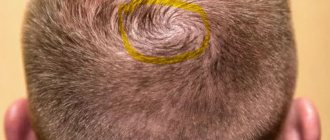Considering the emotionality characteristic of many representatives of the fair sex, the manifestations of which can be both positive and negative, men believe that most ladies are psychopaths. This opinion arises due to the fact that a woman and a man are radically different emotionally, therefore those moments that are laid down by nature for the female half of humanity are perceived by representatives of the stronger sex in the wrong way. However, various behavioral anomalies are indeed common in the modern world, and one of the borderline mental disorders is psychopathy. Knowing the main signs of this disease, any man will be able to better understand his companion and provide her with the necessary support.
Treatment of psychopathy
Currently, this group of mental disorders is defined as character anomalies, personality disharmonies that disrupt adaptation to the surrounding social environment and are often not perceived by the individual as unacceptable, persist throughout life, and are often hardly reversible in advanced cases.
According to international data, psychopathy is very common, reaching from 5 to 15% of the entire adult population. Moreover, men suffer from psychopathy much more often (2 times) than women.
Previously, treatment of psychopathy was carried out with the help of medications and psychotherapy, which somewhat smoothed out the situation, but the development of the disease did not stop. Recent scientific developments, which were carried out in scientific institutes with the participation of our specialists, have shown significant progress in the treatment of psychopathy and personality disorders.
The approach to assessing the patient's condition has been changed and the treatment of psychopathy has become more successful.
Features of pathology in women
It is believed that paranoid psychopathy in women is less aggressive than in men. According to some studies, the disorder begins to manifest itself in the weaker sex from the age of eleven. In general, the main signs of female psychopathy are similar to the manifestations of the disease in men. However, unlike men, women more often end up not in prisons, but in psychiatric clinics.
Causes of psychopathy
The Psychiatric Clinical Center provides treatment for disorders whose causes can be divided into two groups.
- Biological. Patients suffering from mental illness experience congenital disorders in the structure and functioning of the nervous system. They can be caused by hereditary factors, alcoholism or chronic illnesses of parents, various pathologies of intrauterine development, and birth injuries.
- Social. The biological tendency to psychopathy is aggravated by the difficult conditions of mental formation of personality: rough treatment, humiliation, ridicule and other forms of negative attitude from relatives and other members of the immediate environment.
There are several varieties or forms of the most common psychopathy.
Types of psychopathy
Excitable psychopathy is an emotionally unstable personality disorder in which there is a pronounced tendency to act impulsively, without taking into account the consequences, combined with mood instability. They get irritated at the slightest provocation, start shouting and insulting others. At these moments, they are prone to aggressive actions, can cause bodily harm, or commit a serious crime. Aggression can also be directed at oneself, expressed in causing physical harm to oneself (cuts, wounds), sometimes it can lead to suicide. The life of such people is often accompanied by conflicts and quarrels; they often appear in court in connection with hooliganism or murder. It is typical that they blame others for everything that happened. Initial manifestations are often detected in childhood: children often scream, become embittered, punishments and prohibitions cause violent protest reactions with viciousness and aggression.
Paranoid psychopathy - manifests itself in an overestimation of one’s capabilities, suspicion, biased judgment and the inability to dissuade oneself. These people often have fairly high intelligence and high professional qualities. Characterized by increased activity, often with elevated mood, excessive accuracy and intolerance to injustice. They tend to express extreme points of view, which they fixate on for a long time. Of the authorities for them, there are only those whose views are consistent with their point of view. In relationships with others they are rude and overly straightforward. Against the background of this form of psychopathy, pathological ideas of jealousy, persecution, grandeur, etc. can be formed.
Asthenic psychopathy - characterized by intolerance to mental and physical stress, the desire to isolate oneself from any significant work, mental stress, easy vulnerability, impressionability, lack of initiative. In the process of work, they always experience a feeling of particular fatigue, mental discomfort, and negative emotions. Work is not accompanied by positive emotions; it weighs them down. They are not capable of long-term attention and diligent work. They quickly begin to get bored with it, and they may feel tired, weak, and even drowsy. They have to constantly interrupt their work with periods of rest. Their attention is very unstable and easily distracted.
Psychasthenic psychopathy - characterized by exaggerated introspection, usually engulfed in deep thinking about each of their, even insignificant, actions. There is a tendency to see something as one’s own mistake or weakness. As a rule, low self-esteem, indecision, and intolerance to the excitement of anticipation are characteristic. There is a constant tendency to doubt. Sometimes even every little thing, every trifle that he notices in the life around him, makes him think hard, puts him in a state of thoughtfulness. A psychoasthenic person is very fearful and timid; it is difficult for him to make a decision, even if it concerns the most insignificant circumstance. But even having decided and begun to act, he will constantly doubt whether he did so. Therefore, very often his life is filled with worries, fears, worries.
Hysterical psychopathy is characterized by increased emotionality, the desire to put oneself in the center of attention, demonstrativeness, and “affective” logic.
Schizoid psychopathy is characterized by unsociability, self-absorption, and excessive restraint. These are poorly communicative people who experience awkwardness and tension. Very often they avoid meeting with strangers or people they barely know. Informal contacts are usually difficult due to a lack of empathy and intuition (the ability to understand others by facial expressions, intonations, etc.). The internal need for communication is reduced.
The prognosis is generally favorable, but treatment is necessary. It is important to remember that during the treatment process the use of alcohol and drugs is prohibited, and the ability to drive a car is limited. To make an accurate diagnosis and prognosis of the disease, a consultation with a doctor is necessary.
Diagnosis of psychopathy
To diagnose and treat psychopathy in a psychiatric center, the following is carried out:
- EEG. An electroencephalogram allows you to study the functioning of the brain and identify disturbances in its structure or function;
- consultation with a psychologist. A conversation with a patient gives a specialist from a psychiatric medical center the opportunity to establish the state of his intellect and memory, and identify the peculiarities of thinking;
- additional research. To clarify the diagnosis and choose a treatment strategy for a mental disorder, you may also need urine or blood tests, examinations by a neurologist and other specialists at the medical center.
These studies allow the doctor at the psychiatric medical center to make the correct diagnosis. Thus, treatment for psychopathy will not be prescribed to a patient with another disease, such as epilepsy or an endocrine system disorder.
Features of this type of disease in men
As for male psychopaths, such individuals often turn into grumpy arguers, starting a conflict over any issue. Psychopathy of the excitable type in men manifests itself in ardor and explosiveness. The patient seeks to prove that he is right not so much by logical arguments, but by the desire to “shout out” his opponent. He is characterized by straightforwardness and rigidity of thinking. A man always strives to present himself as more honest and fair than the people around him. Often he can enter into a quarrel to protect the interests of third parties, but at the same time quickly switch to his own selfish motives.
If something suddenly interests the patient, it means that this thing is extremely important. In the event that someone does not agree with him, this person will turn into enemy No. 1. This is another feature of excitable type psychopathy in men. Why is such a person dangerous? First of all, it is very difficult to live with him. A psychopath constantly has to be petted, and his whole life will have to be sacrificed to his highly valuable ideas. For a paranoid person there will always be a large number of “enemies”. If we are talking about a married couple, a paranoid husband may prohibit his wife from communicating with her mother, sister or brother. All instructions should be carried out in the way that seems right to him - for example, waking up the child at 5 am or forbidding him to communicate with friends.
Paranoid men are very jealous and constantly look for “signs of infidelity” in their wives. The background to such ideas is not at all inflated self-esteem, but an internal conviction of one’s own sexual inferiority or unattractiveness. At first glance, aggression caused by jealousy should be directed at third parties - more attractive rivals. But such an orientation occurs only in women. The target of jealous aggression in men is primarily his partner. The psychological background of this phenomenon has not yet been fully studied.
Treatment of psychopathy in the clinic
The treatment method for personality disorders is determined by specialists from medical centers, taking into account the type and stage of development of psychopathy. Patients in the compensation stage do not need drug treatment. Prevention of the transition of the disorder to the acute stage consists of creating a favorable social atmosphere around the patient of the medical center: proper education, occupational therapy, assistance in adapting to a team, etc. For decompensatory psychopathy, patients are shown comprehensive treatment of mental illness under the supervision of a specialist from the medical center. Treatment includes the use of psychotherapeutic methods (auto-training, hypnosis, etc.) and individual prescription of medications. Antidepressants (Prozac, fluoxetine, etc.) are used in treatment when low mood is observed, tranquilizers (mezapam, phenazepam, etc.) are prescribed by a specialist at the medical center if the patient has anxiety. In case of aggression, treatment is carried out with the help of antipsychotics such as Sonapax, Triftazin, etc.
Don’t put off treatment until later, contact the Preobrazhenie clinic.
Our center will help you and your loved ones. You can make an appointment or consult on the treatment of psychopathy by phone.
Is it possible to resist pathological development?
Parents need to remember that a child’s social motives are not formed immediately, but over a fairly long period of time, starting from the earliest years. The child should feel a warm attitude towards himself and realize that a similar reaction is expected from him. Sincere love and affection from close people (mother and father, grandparents, siblings) will help develop the right social motives. If a child demonstrates empathy towards other people, this behavior should be encouraged and supported. Only in this case will the chances of pathological personality development be reduced.
Why the disorder needs to be treated
Trying to stand out from others, the psychopath at some point begins to deceive himself. Self-deception often reaches an exaggerated degree. It comes to the point that a person is convinced that he is right, even if he has committed an illegal act, humiliated or insulted someone. It often turns out that thieves, murderers, and maniacs suffer from hysterical disorder. It is because of him that they do not think that they are doing anything wrong.
The disease contributes to a decrease in sexual desire and the development of various somatic pathologies. Often against its background there are:
- fever;
- feeling of a lump in the throat;
- movement disorders;
- stomach ache;
- nausea;
- migraine.
Physiological symptoms are the result of neglected psychosomatics. The nervous system begins to malfunction due to progressive mental disorder. Erroneous signals are sent to the internal organs, which creates the preconditions for pain and general ailments.
Diagnostics
This disease can be diagnosed if the patient has three or more of the following signs:
- indifference and apathy towards others, inability to experience and sympathize, callousness;
- non-acceptance of social attitudes and norms and unwillingness to take responsibility for one’s actions;
- signs of social maladjustment, expressed in the inability to build relationships with people;
- life to please one’s desires, for the fulfillment of which the patient is ready to show aggression, cruelty and violence;
- lack of feelings of guilt or shame for the actions committed;
- increased degree of conflict and the need to blame others for everything;
Symptoms of a psychopathic disorder can manifest themselves in the actions and actions of an individual:
- frequent offenses that may result in arrest or prison time;
- lying for personal gain, hypocritical behavior, lack of morality;
- outbursts of aggression, impulsiveness, insults and bullying of people, which can lead to fights;
- lack of self-preservation instinct, desire to feel adrenaline and put one’s life and the lives of others at risk;
- irresponsibility, financial debts, negligent attitude to work, misappropriation of other people's property.











